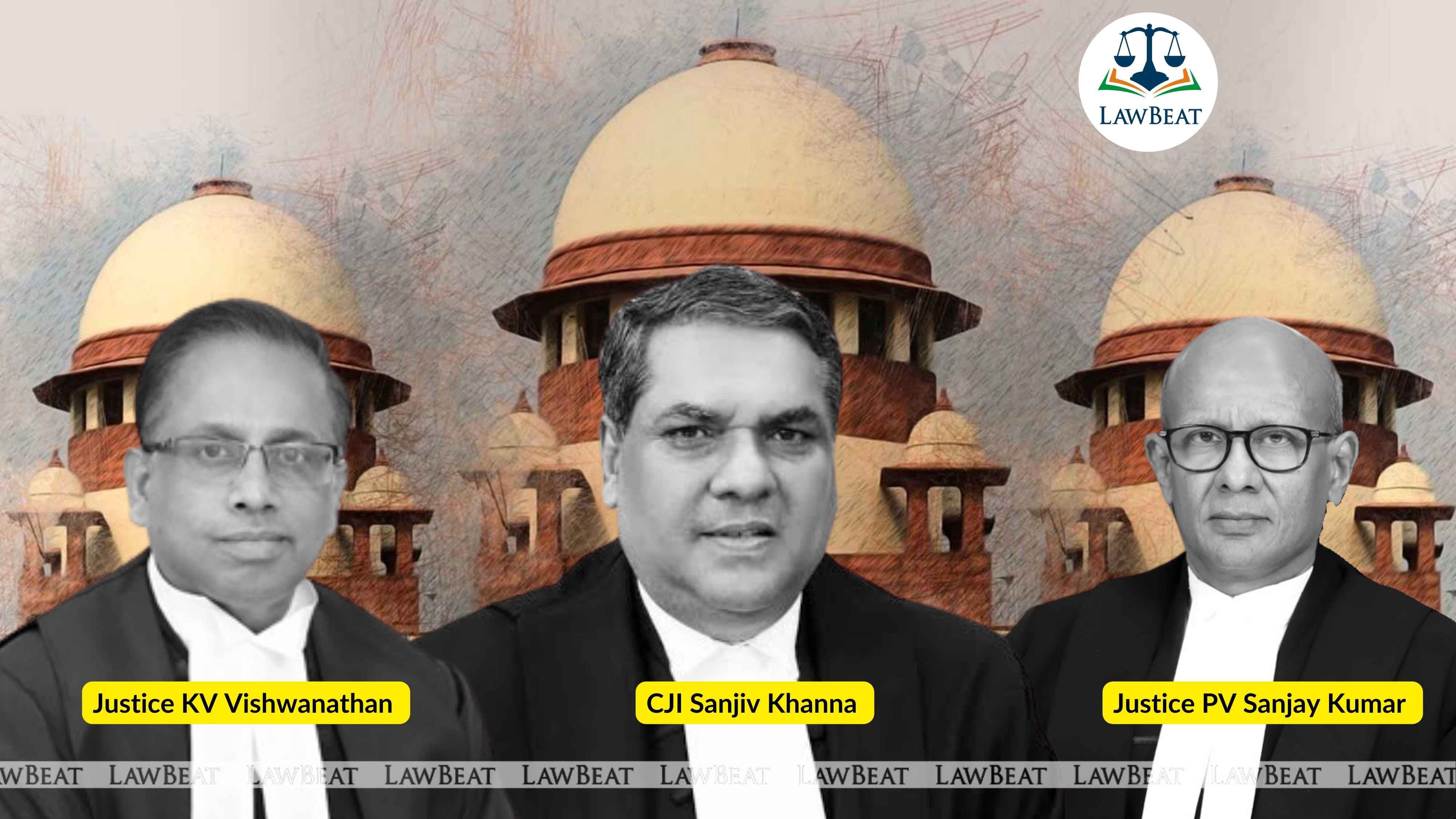'Evidence of family members completely untrustworthy, specious': SC acquits 4 men in 2009 murder case

Maxim ‘Falsus in uno, falsus in omnibus’ (false in one thing, false in everything) is not part of Indian law and jurisprudence and is, at best, a rule of caution, the entire evidence of the witnesses need not be discarded because some of their statements are proved to be factually incorrect, court observed
The Supreme Court on March 27, 2025, acquitted four men in a 2009 murder case, finding that the entire case of the prosecution hinged only upon the oral evidence of the family members of the deceased, which was found to be completely untrustworthy and specious.
The case related to the murder of one Mohan Singh on November 6, 2009, and the FIR was lodged with Kishanpura Ganj police station, District Indore on the same day.
Five men, viz, Arun, Radheshyam, Narendra, Abhay Singh and Ramlal (the last was the only one named as an accused in the FIR) stood trial for the murder. By judgment of June 27, 2013, Additional Sessions Judge, Mhow held them guilty on all counts. They were sentenced to rigorous imprisonment for life.
All five of them jointly filed an appeal before the Madhya Pradesh High Court, which allowed the plea only by Abhay Singh and acquitted him of all charges but upheld the conviction of the rest of them.
As many as 25 witnesses were examined by the prosecution to prove its case.
"However, the oral evidence that was adduced before the Trial Court by Devisingh, the father of the deceased and his family members was, in our opinion, clearly embellished and augmented so as to implicate and indict the five men who stood accused of the murder of Mohan Singh," court said.
In this regard, the court noted that the enmity between the family of the deceased and some of the accused was admitted by the family members themselves.
"Their depositions before the Trial Court, naming all the accused and attributing specific overt acts to each of them, would have to be examined very carefully, given the variance in the initial version in the FIR In fact, this inconsistency dented the prosecution’s case in entirety," the court said.
A bench of Chief Justice of India Sanjiv Khanna and Justices Sanjay Kumar and K V Vishwanathan pointed out that the maxim ‘Falsus in uno, falsus in omnibus’ (false in one thing, false in everything) is not part of Indian law and jurisprudence and is, at best, a rule of caution the entire evidence of these witnesses need not be discarded because some of their statements are proved to be factually incorrect.
However, their depositions would have to be viewed with care and caution before they are accepted and acted upon, the bench said.
The prosecution witnesses deposed of hearing gun shot but the doctor who conducted the medical examination stated there was no gunshot injury on the body.
The court noted the delay on the part of the Investigating Officer in recording the statements of these so-called crucial witnesses was unfathomable, given their availability and the versions given by them.
"It casts a cloud on the very veracity of their testimonies. Further, the discrepancies in the timelines brought out by them demonstrates in no uncertain terms that the narratives of these witnesses are not free from suspicion and doubt," the bench said.
Court also pointed out all that Devisingh had reported at the time of registration of the FIR was that he saw Ramlal, one of the five accused, but his deposition before the trial court was very much to the contrary, as he not only named them but also attributed specific overt acts to them. Similarly, the other family members, whose very presence at the spot was doubtful, furnished full-fledged details of how the accused attacked Mohan Singh.
The only other incriminating circumstance relied upon by the prosecution was the recovery of a 12-bore country made pistol from Arun, one of the appellants. "However, surprisingly, no bullet was recovered from the body of Mohan Singh, the deceased, though there is no evidence of any exit wound," the bench highlighted.
In consequence, the court held the cause of Mohan Singh’s death being a ‘gunshot wound’ was itself open to question and, therefore, the so-called recovery of the pistol from Arun did not help the prosecution.
The court, thus, said, cthe onviction of the appellants could not rest solely on such doubtful testimonies. The trial court and the high court erred in the appreciation of the dubious oral evidence and in drawing the proper inferences therefrom, the bench said.
Allowing the appeal, the court gave appellants Arun and others benefit of doubt as the prosecution failed to prove the charges levelled against them beyond reasonable doubt. It set aside the judgment of the high court of January 25, 2024 as well as the decision of the trial court of June 27, 2013.
Court acquitted all the appellants of all the charges and ordered forthwith release of Ramlal from jail. It had earlier suspended sentence of three others Arun, Narendra and Radheshyam. Court also directed for refund of fine amount paid by them.
Case Title: Arun Vs State of Madhya Pradesh
